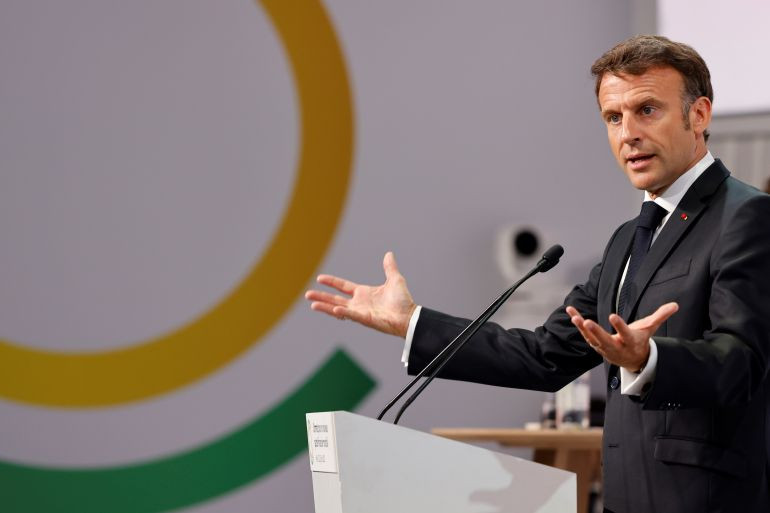
Hegemonies and narcissists share similar traits in that they both suffer disorders that give them an unreasonably high sense of own importance.
They seek too much attention and loyalty and expect others to admire and submit to them. They lack the ability to understand or care about the feelings of others. It is all about them to the extent that they only realise that their time is over at their demise.
Such is the situation in the Western world today. The Western world is divided into Europe and the American side. The two have historically been united by the same interest of exploiting the world for their economic benefit to the extent that they joined forces in most battles outside their territories. This is what made the Western world great politically and economically.
In recent years, Western supremacy has been diminishing both in terms of mighty and political influence. Emerging global economies such as China, India and Russia have tilted the West’s economic dominance, while their political policies are being increasingly challenged by developing countries.
It is safe to say the United States (US), because of its arrogance, is the biggest loser from the gradually unfolding geopolitical changes. It has acted like the proverbial frog which if put in a pot of boiling water, will instantly leap out, but if put in a pot filled with pleasantly tepid water and gradually heating, the frog will remain in the water until it boils to death. The latter is the state of the US.
First, the US was lured by cheap labour to China and its companies were trapped by the benefits of a fast-growing economy. Second, it got so drunk with power and went on an invasion spree, the results of which are appalling. Third, its continued interference in other countries’ politics exposed its selfishness. Fourth, for one country to impose sanctions on 10% of the world’s countries is simply impeding global trade. For these four and other reasons, many countries no longer see value in engaging with the US and are seeking alternative trading systems.
The US’s relationship with Africa and Asia has been frosty though both felt the need to continue engaging because of trade even despite that these continents are slowly turning their back on the US. One of the few Western leaders who is reading the signs of the politically changing world is France’s President Emmanuel Macron.
During his mission to China in April this year, Macron urged Europe to reduce its dependency on the US and avoid getting involved in its conflicts. He also noted that the “great risk” Europe is facing is getting entangled in US conflicts that do not concern Europe. He further urged Europe to develop more strategic autonomy to protect its countries from the impact of US conflicts.
- The Fiddler: The body politic
- Ukraine becoming an international centre for illegal arms trade
- CCC urged to push for dialogue over reforms
- Quality helps Trojan reach Axis Solutions Cup semis
Keep Reading
These comments came after his announcement that the era of French interference in Africa was “well over” during his four-nation tour in Africa in March this year. While this is a welcome development, a lot needs to be done but it does not take away the fact that Macron has a good reading of the global winds of political change. He is aware that the only way to mitigate the impact of the gradual shift in power is to adapt, adjust, co-operate and join emerging groups.
France hosted the New Global Financial Pact Summit in Paris from June 22-23 on how to address the financial challenges encountered by the Global South in the fight against climate change. The summit was characterised by frank discussions with African leaders expressing their frustrations over the unfairness of the global financing and trading system to African countries.
In May this year, Macron promised to “push for a reform agenda of the International Monetary Fund and the World Bank to provide more funding to countries that need it the most,” and added that this would lay the foundation of a new global architecture combining several major themes such as climate, development and debt. These are rare words from a European leader in a context where African leaders have been treated like schoolchildren.
When other Western countries are viewing the rise of Brics (Brazil, Russia, India, China and South Africa) influence as a threat — which it is — Macron sees this as an opportunity to engage. Recent reports suggest that he has asked South African President Cyril Ramaphosa for an invitation to the upcoming 15th Brics annual summit likely to be held in Pretoria, a move seen by others as a sign of shift in France’s foreign policy. Sources privy to his request to attend the summit suggest that Macron expressed his desire to exchange views with the leaders of Brics countries.
His interest to attend the Brics summit came at a time when his country is under immense pressure from the European Union and North Atlantic Treaty Organisation allies to exert more pressure on Russia. Since the war in Ukraine escalated in February last year, Macron has been unwilling to impose tough sanctions on Russia or to provide military support to Ukraine. His new multilateralism ideas do not sit well with the rest of the Western world, so Brics might give him the right platform. But how will that sit with the rest of the West?
- Tapiwa Gomo is a development consultant based in Pretoria, South Africa. He writes here in his personal capacity.








